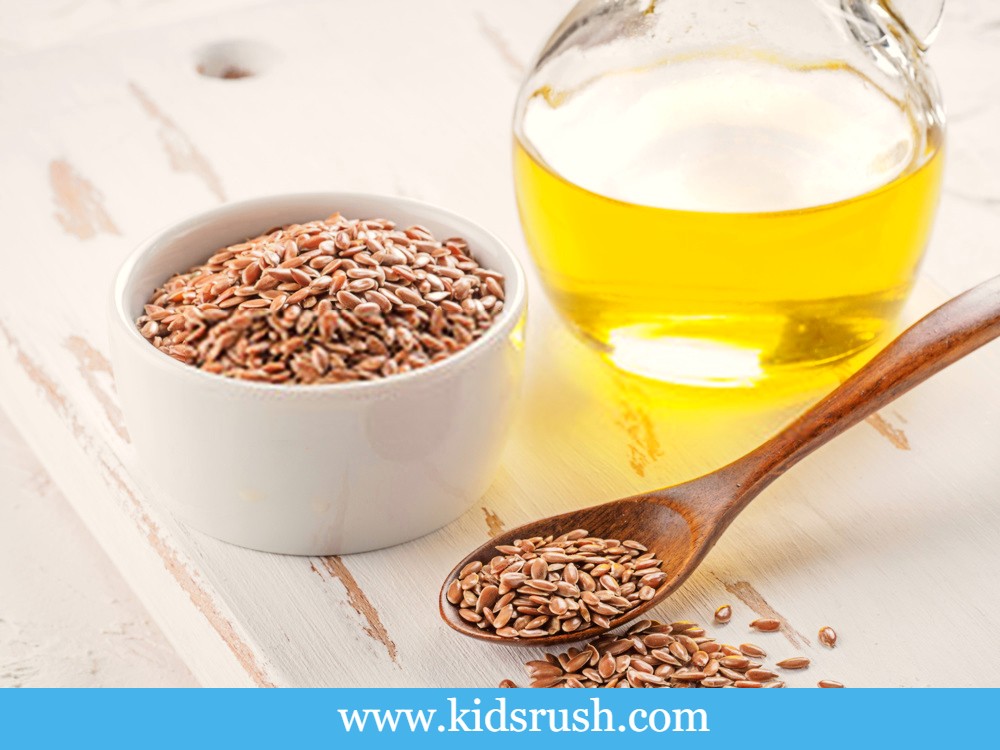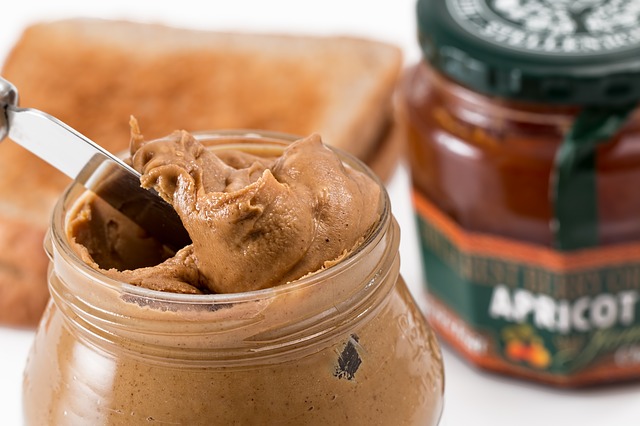Although obesity affects many children, some of them have a vested interest in gaining weight for their well-being. However, it is not about letting them eat what they want. You need to change their eating habits, focus on nutritious high-calorie foods, and discreetly feed them extra calories to help them gain weight. Before doing anything, however, you should always seek medical advice if you think your child is too thin. In this article of kidsrush.com, we will give you a step by step guide to stimulate weight gain in your children.
Identify the causes of the problem if you want to stimulate weight gain in children
Look for the underlying causes
Like some adults, some children are naturally thin and have trouble gaining weight. Nevertheless, it remains important to find other reasons which prevent them from putting on weight [1].
- By nature, children are picky eaters. However, if your child is simply refusing to feed, it is likely due to a medical or psychological problem. Problems with weight gain are often caused by hormonal or metabolic disorders such as diabetes or hyperthyroidism.
- Eating can also become unpleasant if your child has gastrointestinal or other problems or has an undiagnosed food allergy.
- If your child is on any treatment, be aware that certain medicines will affect his appetite.
- Even pre-teens can develop eating disorders because of issues like peer pressure.
- Finally, your child may just be too active and burn more calories than he consumes.
Go to a pediatrician to stimulate weight gain in children
The pediatrician will be the first person to tell you that it is in your child’s best interests to gain weight if they have regular check-ups. However, do not hesitate to talk to him about it right away if you have any doubts [2].
- Again, weight gain issues can be caused by allergies, digestive issues, and a variety of other phenomena. The pediatrician will help you diagnose their origin and treat them.
- Note that most of the time, the problem can be treated with changes that can be made at home, although the advice of a medical professional will be of great help.
Follow the instructions required for a toddler to stimulate weight gain in children
When it comes to gaining weight, a toddler’s needs will naturally be different from those of an older child. The origin of the problem is seldom serious since it is often related to the technique of feeding, to the production of breast milk, or gastrointestinal problems [3].
- If you think your child is underweight, do nothing without consulting a doctor who can give him tests or recommend a nutrition specialist (to observe the feeding technique). They can also refer you to a pediatric gastroenterologist.
- The particular situation of your child will determine the type of treatment to be followed, but the pediatrician may recommend that you: infant milk in addition to breast milk (in case there is insufficient breast milk production), let the child also breastfeed often and for as long as desired (flexible feeding times), to use another brand of infant formula (if the child has an intolerance or allergy or to increase his calorie consumption) or introduce solid foods before the required age of 6 months. The child may also be prescribed medication for acid reflux.
- Gaining weight during the first few years of life is essential for long-term well-being. This is why dietary deficiencies should always be treated with appropriate medication. It is almost always possible to reverse a below-average weight gain without risk to the patient.
Change these habits of your children if you want to stimulate weight gain
Feed him more often to stimulate weight gain in children

The problem with underweight children is more often the amount consumed than what they eat. Children’s stomachs are smaller than adults’, hence the importance of eating more often.
- Every day, children should eat 5-6 small meals in addition to snacks.
- Feed her whenever your child is hungry.
Give importance to meal times to stimulate weight gain in children
Your child can have a snack as often as they like, but mealtimes should be sacred. Make him understand that this moment is both essential and pleasant.
- Your child will be less inclined to eat if he perceives mealtime as an annoyance or a form of punishment (for example, if you tell him to stay seated until he has finished his plate).
- Create a real meal routine. Turn off the TV, prepare food, and enjoy the moment.
Lead by example
Your child needs to gain weight and you may need to lose weight yourself. However, your eating habits don’t have to be as different as you think. It is important to eat different nutrient-dense foods whether you are underweight, overweight, or in between.
- Children often imitate adults. If you regularly try new foods and make healthy choices (for example, eating fruits, vegetables, and whole grains), there’s a good chance your child will do the same.
- Whether you need to gain or lose weight, you should keep your junk food as low as possible.
Encourage him to exercise to stimulate weight gain in children

Like a healthy diet, exercise is more often associated with weight loss than weight gain. However, when paired with the right foods, they can help put on weight.
- Gaining muscle mass helps to gain weight especially in older children and it is also healthier than increasing fat mass.
- Exercises often help stimulate the appetite, hence the value of practicing physical activity before meals.
Choose foods high in calories and nutrients
Avoid bad foods to stimulate weight gain in children

Cakes, cookies, sodas, and junk food are high in calories and help gain weight, but they are more harmful than beneficial to health (and can even cause diabetes or heart disease.
- To gain a healthy weight, you must avoid foods that are high in calories but low in nutrients. Instead, focus on foods that are both high in calories and nutrients, as they will help you gain weight while providing you with the vitamins and minerals you need.
- Encourage your child to eat by telling him that he needs to choose and eat healthy foods. Don’t tell him he needs to be getting fat or that he only has skin under his bones.
Give him different foods rich in nutrients to stimulate weight gain in children
You need to vary your child’s food, not only to get the maximum amount of vital nutrients but also because it makes the meal more interesting. It will be less inclined to eat if mealtime seems to be a chore or a dull moment.
- A diet high in calories and nutrients should include starchy carbohydrates (such as pasta, bread, or cereals), at least 5 daily servings of fruits and vegetables, protein (such as meat, fish, eggs, and beans), and dairy products (such as milk or cheese).
- All children under 2 years old should consume whole milk products. To promote weight gain, your doctor may recommend that you continue this practice after this age.
- Fiber is an essential component of a healthy diet, but its intake should be limited in children trying to gain weight. Too much whole-grain pasta or brown rice will leave them feeling full for too long.
Use good fats

Fat is often associated with negative things and yet it is not always the case. Most vegetable fats in particular are inseparable from a healthy diet. Good fats help you gain weight because they contain about 9 calories per gram while carbohydrates or protein only contain about 4 per gram.
- Flaxseed oil and coconut oil are great and can be used in many culinary preparations. Flaxseed oil has a neutral taste that is almost difficult to discern while coconut oil gives a pleasing taste to many dishes, from sautéed vegetables to fruit smoothies.
- You can also use olives or olive oil.
- Nuts and grains like almonds or pistachios contain a lot of good fats.
- Avocados impart a creamy texture to many foods and also contain good fats.
Choose your snacks wisely
To gain weight, children need to eat snacks regularly, but as with meals, it is important to choose healthy options over foods high in empty calories.
- Choose snacks that are high in calories, high in nutrients, and easy to prepare and serve. For example, you can give your child whole-grain bread spread with peanut butter and jam, nuts and dried fruits, apples with cheese, or turkey covered with avocado.
- Rather than cakes, cookies, and ice cream, favor bran muffins, granola bars, and yogurt as treats.
Watch what your child drinks
Children should drink enough water, but not too much, to keep them from getting full and end up eating less.
- Drinks high in empty calories (such as soft drinks) have no nutritional value, while fruit juices contain sugar which is harmful to teeth and general health if consumed excessively.
- Water is ideal, but a child who needs to gain weight can also consume whole milk, smoothies, or milkshakes. You can also give him nutritional drink supplements like Pedia Sure or Ensure or ask the pediatrician to recommend other effective options.
- Ideally, your child should drink after meals and not before. If he wants to drink first, make sure it’s just enough for him to eat comfortably and safely. Drinking too much before meals could make him feel full.
Increase the number of calories in food
Use the milk to stimulate weight gain in children

Milk is ideal for increasing the calorie (and nutrient) content of culinary preparations, as dairy products (such as milk or cheese) go well with many types of foods.
- Fruit smoothies and milkshakes are great for fueling calories, while fresh fruit is a great source of nutrients.
- Cheese can be melted or sprinkled on almost anything, whether it’s eggs, salads, or steamed vegetables.
- Mix canned soups with milk instead of water, and eat your fruits and vegetables with sour cream, cream cheese, or yogurt-based sauces.
- If your child is allergic to or suffers from lactose intolerance or if you simply don’t want to use dairy products, you can adapt your recipes. For example, you can use soy or almond milk to increase the calorie and nutrient content of your preparations. You can also use silken tofu in your smoothies.
Give him peanut butter to stimulate weight gain in children
As long as your child is not allergic to it, you can add peanut butter to their meals to increase their calorie and protein content.
- Peanut butter can be eaten with whole grain bread, bananas, apples, celery, multigrain crackers, and pretzels.
- You can also add peanut butter to your fruit and milkshakes smoothies or spread it between 2 pancakes or 2 rusks.
- If your child is allergic to peanut butter, use almond butter instead. Flax seeds and flaxseed oil are also high in calories and nutrients.
Proceed in stages
It is possible to increase the calorie and nutrient content of your child’s food by addition and substitution.
- Instead of cooking the pasta and rice with water, use chicken broth.
- Give him dried fruits, as their low water content reduces the risk of satiety, which will encourage him to eat more.
- Thanks to its light taste, flaxseed oil can be mixed with salad dressings, peanut butter, and banana smoothies.
- Add cooked beef or chicken to your pasta, your pizzas, your soups, your stews, your scrambled eggs, or your macaroni and cheeses.
Try high calorie, yet healthy recipes
There are many recipes on the Internet that you can use to help your child gain weight safely. For example, some medical centers such as UC-Davis Medical Center have posted brochures that bring together several preparations for children. Among other things, you will find recipes for fruit sauce or super shakes.
- These brochures explain how to make high-calorie milk with 2 tablespoons of dry powdered milk added to a cup of whole or skim milk.
- You can also find recipes for energy balls on the Internet, which are a treat made from dried fruits, nuts, and sweets that can be stored for a long time and served quickly to hungry children.
Warnings from kidsrush.com
- Do not give your child drinks or sugary and fatty foods ( chips, cakes, candy bars, or soft drinks) to increase their calorie consumption. These foods may help him gain weight, but mostly they will affect his teeth, body, muscle growth, heart, and brain. They can also worsen existing health problems (such as diabetes).
- See a doctor quickly if you think your child is not gaining weight or is losing weight. This is all the more important if it seems sudden or if he is sick. Published By kidsrush.com
Reference:

